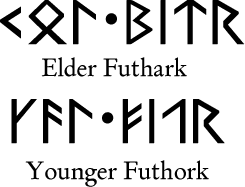Last night the words levee and gansey came up in conversation and while I’d heard both of them before, I wasn’t entirely sure of the meaning of the former, or the origins of the latter. I did know that a levee had something to with flood prevention and was something you drive your chevy to, and that gansey sounded similar to the Irish word, geansaí (jersey, jumper), though I hadn’t heard it used in English before.
A levee, /lɪˈviː/ or /ˈlɛviː/, is a natural embankment along a river formed by sedimentation, or a man-made embankment along a river or around a field designed to prevent flooding. It is also a landing place or quay; a formal ceremony held when a sovereign gets up in the morning, or an afternoon reception for men at court [source].
Levee in the sense of a man-made flood-prevention embankment is apparently used mainly in American English (especially in the Midwest and Deep South), and was first used in English in New Orleans in around 1720. Other words for levee include levée, dike/dyke, embankment, floodbank and stopbank.
Etymology: the feminine form of the past participle of the French verb lever (to raise), from the Latin levare (to raise), from levis (light in weight), from the Proto-Indo-European root *le(n)gwh- (light, easy, agile, nimble) [source].
According to the Oxford English Dictionary, gansey, /ˈgænzɪ/, is a jersey or pullover and is a dialect variant of Guernsey, one of the Channel Islands famous for its knitted sweaters. It is also written gansy, ganzee, ganzey, ganzie & ganzy. This dictionary also has a Guernsey coat, “a thick, knitted, closely-fitting vest or shirt, generally made of blue wool, worn by seamen”, which is also known as a Garnesie, Garnsey or Gernsey.
Another source claims that the word gansey comes from “a word of Scandinavian origin meaning ‘tunic'”. This sounds plausible as the Norwegian word for such a garment is genser [source], though it’s possible that the Norwegian word comes from Britain or Ireland.
The Art of the Fishing Communities website, “Ganseys (Guernseys), Jerseys, Aran and Fair Isle are names given to fishermen’s knitted pullovers that were universally popular in the 19th and early 20th century. Each fishing village had its own pattern and within the local pattern there were small variations, and sometimes names, that identified the family and individual.”
The Irish word for jersey or sweater, and also the island of Guernsey, is geansaí /gʲansiː/, sounds similar to gansey and possibly comes from the same source. The word is also found in Manx – gansee and in Scottish Gaelic – geansaidh.
What do you call a knitted woollen top?
Jumper, sweater, pullover and jersey, and indeed gansey, are all used in the UK, and I normally say jumper.
